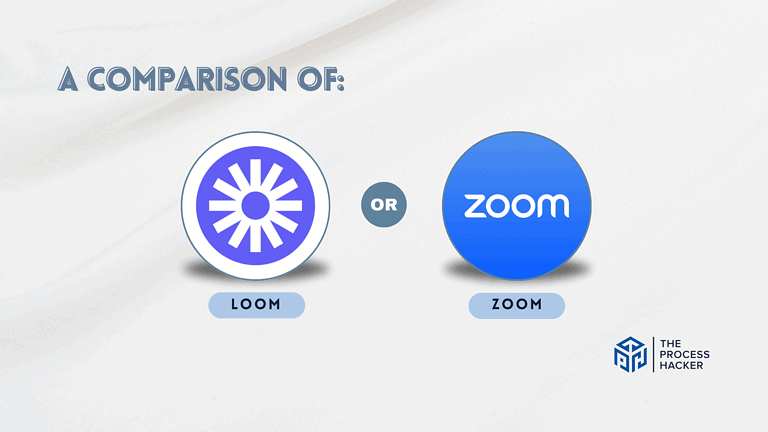The 8 Common Small Business Mistakes That You Should Avoid
Are you ready to fail? Succeeding as an entrepreneur means that you will have to constantly overcome failure in your own business.
In Entrepreneurial Leap (book summary), Gino Wickman describes the eight critical mistakes of entrepreneurship that result in the entrepreneur’s worst-case scenario. As the following scenarios are avoidable for small business owners, Gino shares them so you can avoid them.
Thus, you should understand these eight critical entrepreneurial mistakes that result in the nightmare scenario for most entrepreneurs:
- Not Having a Vision: Having a documented vision is essential to outline who you are and where you are going as an organization.
- Hiring the Wrong People: Select the right people who embody your core values and help your company grow.
- Not Spending Time with Your People: Hang out with your people regularly to receive feedback, give feedback, and keep them on the same page.
- Not Knowing Who Your Customer Is: Understand and focus on your ideal customer so your marketing works effectively.
- Not Charging Enough: Set and raise your prices for your goods and services so they frighten you.
- Not Staying True to Your Core: Maintain attention to the purpose of your company and why it exists.
- Not Knowing Your Numbers: Track metrics that support your efforts to communicate and aid in effective decision-making.
- Not Clarifying Roles and Responsibilities: Have a clear accountability structure in place with defined roles and responsibilities.
Before we dig into each mistake, you should understand that you will make mistakes like many entrepreneurs. Everyone does. You will fail, so you need to embrace fewer mistakes and failures to learn and grow.
Critical Mistake #1: Not Having a Vision or Business Plan
Instead of worrying what the right business entity to start, it is essential to have a clear business idea about who you are now and where the company is heading. When these business ideas are documented, you need to communicate them regularly with your people so that everyone understands the vision and is working together to achieve it.
Your vision is a clear picture of what you want your company to become. Documenting your vision will aid in clarifying it and ensuring the organization’s ultimate success.
Define Your Vision
In Entrepreneurial Leap (book summary), Gino Wickman provides the MyVision Clarifier to help you establish the eight parts of your business idea:
- My Passion: Why? What am I passionate about?
- My Customer’s Needs: What need (or want) am I filling for my customer/client?
- My Ideal Customer: Who is my ideal customer?
- My Pricing Structure: What’s the pricing structure for my product or service?
- 10-Year Goal: What’s the number one most important goal to accomplish in ten years?
- 3-Year Plan: What do I want to achieve in the first three years?
- 1-Year Plan: What do I want to accomplish in the first year?
- 90-Day Plan: What are the most important things to achieve in the next ninety days?
The more clarity you have in your vision, the more likely you will achieve it. For more on documenting your vision, check out our post on the MyVision Clarifier.
Critical Mistake #2: Hiring the Wrong People
When hiring, make sure the candidate embraces your company’s core values. Do not rush things and consider the long term. Avoid hiring someone as a quick fix. If you accidentally hire the incorrect individual, you must be ready to fire them quickly.
Establish Core Values
In Traction (book summary), Gino Wickman defines Core Values as follows:
Core Values – “a timeless set of [three to seven] guiding principles that define your culture and the behaviors you expect from each other; they help you determine who fits your culture and who doesn’t, and they help you attract like-minded people to your team”
Even in a company of one, your core values guide your thoughts, behaviors, and actions. When your business model grows and you start hiring, your core values will make it easier for you people to make decisions, foster teamwork, and collaborate.
Critical Mistake #3: Not Spending Time with Your People
One of the biggest mistakes is most leaders simply do not spend enough time with their people.
A survey asked respondents to estimate the time spent with their direct leaders and polled them about various feelings about their work. As people increased valuable time spent with their direct leaders from one to six hours, they became 29% more inspired about work, 30% more engaged, 16% more innovative, and 15% more intrinsically motivated.
Leaders intuitively know that quality time makes their people feel more engaged. Thus, you should stay in touch with your people regularly on a weekly, quarterly, and annual basis to know more about a glimpse into their personal lives.
You need to keep them informed about the company’s vision and direction. Also, you should maintain openness to feedback and handle interpersonal issues when they arise.
Critical Mistake #4: Not Knowing Who Your Customer Is
You should determine who your consumer is as early as possible in the process of starting your own business entity. To create a business, you must target the proper consumers with the appropriate demands to buy your products and services. And you can’t afford to try everything.
Define Your Ideal Customer in Your Marketing Strategy
So, within your vision, you should start your marketing efforts by identifying your ideal client:
Ideal Customer – the targeted people that are willing to pay for your goods or services, which include:
- Demographic – the qualities of who they are
- Geographic – the physical and virtual location of where they are
- Psychological – the psychology of what they are
Be specific when clarifying your ideal customer, as your marketing plan can be more effective by targeting a niche market. Also, creating an avatar or an explicit expiration and description of your target customer is helpful in understanding their need and wants.
Critical Mistake #5: Not Charging Enough
One common startup mistake is undercharging their products or services, typically because they are scared to charge what they are worth. These are part of your intellectual property, and it does not help that determining how much to charge is difficult.
In most cases, if your price is too low, you won’t earn enough margin per unit to turn a profit to suffice if you have liabilities like a business loan. In contrast, if you price excessively high, you may not be able to acquire sufficient clients or volume to make a profit.
Raise Your Prices
Therefore, as part of your Vision, you need to charge enough for your pricing structure, including your core price points and choices about discounts, offers, and business strategy. Set your price based on the amount of value (or perceived value) you deliver to the target audience. At the same time, your price should cover the expenses linked with product or service development and delivery. Whatever you charge for your goods or services, you must be clear and confident in it.
This strategy is crucial not only to cover costs but also to gain market share and establish a foothold, especially for new small businesses. A common startup mistake is setting prices too low in an attempt to attract customers quickly without conducting adequate market research to understand what the market values and what competitors are charging. By setting a thoughtful pricing strategy, you signal your market position and ensure sustainability and growth in your business sector.
Critical Mistake #6: Not Staying True to Your Core
What goods or services does your company provide at its core? You should focus on your offerings and proper legal structure because many small businesses fail as they expand beyond their core focus.
Define Your Brand’s Core Focus
In Traction (book summary), Gino Wickman defines Core Focus as follows:
Core Focus – describes what you are as a new business to maintain focus on the areas where you excel at the intersection of:
- Why does your business exist? This is the purpose, cause, or passion of your organization encapsulated in a short phrase that is simple, strong, and sincere.
- What is your business niche? This is the specific good or service that you produce for your customers.
Your Core Focus should combine what you are good at, what you are excited about, and what the market demands. Every successful business needs one and should figure it out as soon as possible.
Defining a Core Focus helps you avoid the “shiny stuff” or distractions of unrelated products or services. Also, it ensures that your company’s process, people, and vendor are aligned to promote and work for your core attention.
Critical Mistake #7: Not Knowing Your Numbers
As Peter Drucker has famously said, “What gets measured, gets managed.” Thus, you need to know your numbers or metrics to be a great entrepreneur. First, you should create a budget and review your financials monthly, precisely revenue, expenses, and profit.
Establish Metrics and Display Them on a Dashboard
Further, establish a metrics dashboard to track your business’s five to fifteen most critical numbers every week. Your metrics should use the SMART framework, which allows you to forecast, flag problems, and take action.
For example, you can track traffic, followers, leads, appointments, proposals, sales, mistakes, customer satisfaction, cash flow, accounts payable, accounts receivable, etc. However, avoid tracking too many and understand that the metrics will evolve as the business changes and grows.
Numbers are significant as quantitative data does not lie. Therefore, you should use the right data over assumptions, opinions, and emotions. The right metrics will improve your ability to have productive discussions and make better decisions.
Critical Mistake #8: Not Clarifying Roles and Responsibilities
Another common mistake when growing your team or hiring contractors and vendors is not clarifying roles and responsibilities. Without clarity, you and your people may run into confusing and chaotic scenarios.
Create an Org Chart with Roles & Responsibilities
Your company should have an explicit organizational structure. Each team member, including yourself, should understand their responsibilities within your company.
Further, they should operate in their area of greatest skill and passion. Everyone will know who they report to and how to communicate to get things done.
In Traction (book summary), Gino Wickman provides the Accountability Chart tool to have you define the “right structure for your company and clearly identify who is accountable for what.” Every role should be identified by function, with about five to seven significant roles and responsibilities.
Final Thoughts on Avoid Mistakes As a Small Business Owner

Starting and running a small business can be an exciting and challenging journey. While there’s no guarantee for success, avoiding these common small business mistakes and learning from them can significantly increase your chances of achieving your entrepreneurial dreams.
From not having a clear vision and plan to neglecting the importance of marketing and financial management, new business owners make the most out of juggling multiple hats and responsibilities. However, these challenges can be overcome with persistence, determination, and willingness to learn from their mistakes.
Whether you’re a small business owner just starting out or have been in the game for a while now, it’s never too late to reevaluate your strategies and make necessary changes for your business’s growth. After all, as Henry Ford once said, “Failure is simply the opportunity to begin again, this time more intelligently.”
So go forth, my fellow entrepreneurs! Learn from these mistakes and keep on hustling towards your goals.
Business success may not happen overnight, but with hard work and perseverance, nothing is impossible if you dream big!






